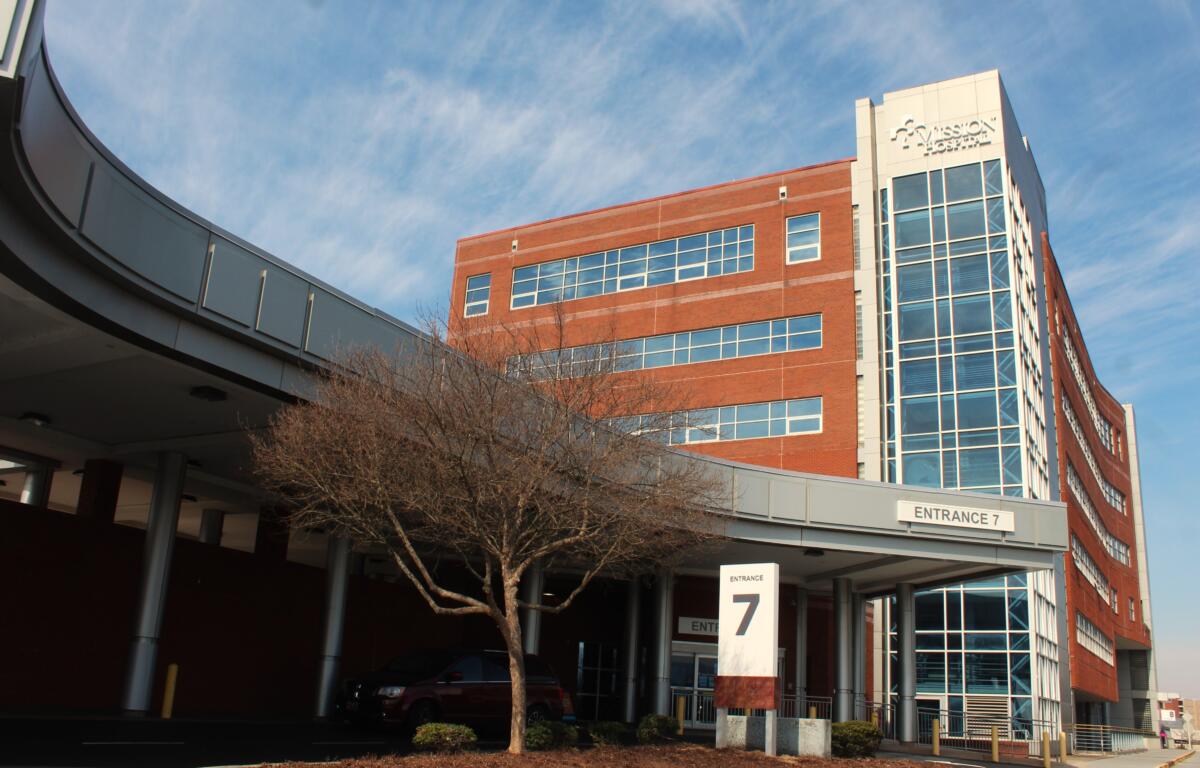ASHEVILLE, N.C. (828newsNOW) —
This is the week that Mission Hospital could learn whether its Medicare provider agreement still is in jeopardy.
The question has been up in the air since late last year, when the North Carolina State Survey Agency conducted a complaint survey and found that the hospital was out of compliance with Emergency Medical Treatment and Labor ACT (EMTALA) requirements, partly related to delays in triage and medical screening in the emergency department.
The hospital submitted, and amended, plans of corrective action, including extra staff training and various new systems intended to improve arrival-to-triage times and bring more timely treatment to patients brought to the emergency department.
The federal Centers for Medicare & Medicaid Services informed the hospital on March 26 that it had reviewed the plan of correction and found it acceptable. But Linda Smith, director of the CMS Division of Atlanta Survey Enforcement, also told the hospital its Medicare provider agreement remained in jeopardy.
“When the North Carolina State Survey Agency has determined that the noncompliance with EMTALA requirements has been corrected, CMS will withdraw its current termination action,” Smith wrote on March 26, 2024. “Failure to correct the deficient practice by June 5, 2024, will result in the termination of your provider agreement.”
With that deadline approaching on Wednesday, a CMS spokesman declined to comment on Monday.
Throughout the process, Mission Hospital officials have said they take the matters seriously and have made “significant” changes to improve patient care.
AGENCY ACCEPTS MISSION HOSPITAL’S PLAN TO ADDRESS TRIAGE DELAYS
COUNTY JOINS COMPLAINT, ACCUSES MISSION OF ‘PARKING’ PATIENTS WITH EMS
Mission’s plan of action, detailed on CMS records obtained by 828newsNOW earlier this year, included:
- A review of arrival-to-triage performance, and implementation of a time-stamp process to capture accurate arrival times, plus additional staff training on triage.
- Educating staff that patients arriving in the emergency department need to be seen “promptly,” with a goal of 10 minutes upon arrival, and about the need to accurately document the time between a patient’s arrival and triage.
- Creating an “escalation pathway” to bring additional staff support when more than three patients are in the triage line.
- New systems for “timely and frequent” communication regarding various aspects of patient care.
- Additional training for lab staff and other hospital personnel.
- Tracking and trending of appropriate Emergency Severity Index (ESI) levels of patients, and additional staff education.
- An update of the Mission Hospital Surge Plan “to ensure adequacy of resources and the safe delivery of care during high influx of patients.”
According to the CMS records, a statement of deficiencies and plan of correction, the changes were in response to some serious incidents. The report includes minute-by-minute details on the case of “Patient #2,” a 66-year-old who was brought to the hospital by ambulance on Oct. 17, 2023, faced delays in getting evaluated and treated, and subsequently had a fatal cardiac arrest.


